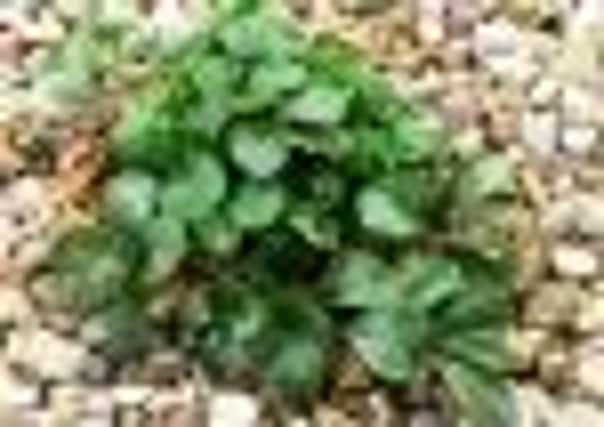Join the mulch bunch


Mulches keep the soil moist and, if the mulching material is weed-free (very important) they reduce the growth of weeds, saving the gardener time better spent than hoeing and kneeling down trying to pull deep-rooted weeds from the ground.
Mulches also keep the soil cooler in the summer and warmer in the winter, thus maintaining a more even soil temperature.
Advertisement
Hide AdAdvertisement
Hide AdAnd organic mulches can improve the soil structure. As the mulch decays, the material becomes topsoil.
Mulches help prevent soil compaction and not only do they do good, but they can look good.
So get out and mulch.
Basically, there are two types of mulches – organic and inorganic – and both types may have their place in the garden.
An organic mulch is one made of natural substances such as bark, leafmould, wood chips, leaves, pine needles, or, as a last resort, grass clippings.
Advertisement
Hide AdAdvertisement
Hide AdOrganic mulches, which attract insects, slugs (sorry), and the birds that eat them, decompose over time and need to be replaced after several years. Inorganic mulches, such as gravel, pebbles, black plastic and old carpet, do not attract pests and they do not decompose.
But if you can’t be bothered doing the work of laying a mulch, or you don’t think it will look right in your garden, there are even plants which will do the same job – any perennial ground-coverers such as certain ivies, periwinkle and pachysandra.
Whatever mulch you decide to use, always begin by clearing perennial weeds. Once they are out of the way, soak the soil if it’s dry, and then get spreading. Aim for a mulch that’s three inches deep. Annual weeds may appear later in the season, but they are simple to remove with a hoe.
As for inorganic mulches... they are permanent and are best used for permanent plantings. They can also affect the temperature of the soil (notably in summer) and, in some cases, harm plants. For instance, don’t use limestone chippings around acid-loving plants.
Advertisement
Hide AdAdvertisement
Hide AdThe biggest benefit of inorganic mulches is that they are very weed-unfriendly. The biggest drawback is that the likes of black plastic and old carpet are ugly and they add no nutrients to the soil. Cheap, yes, but if you have the option to use well-rotted leafmould or weed-free compost, and it’s right the site to be mulched, go for it.